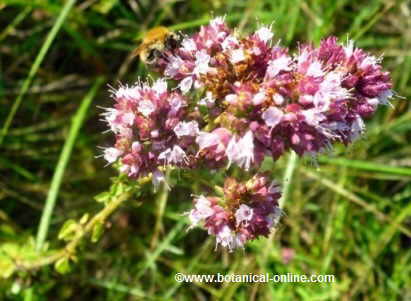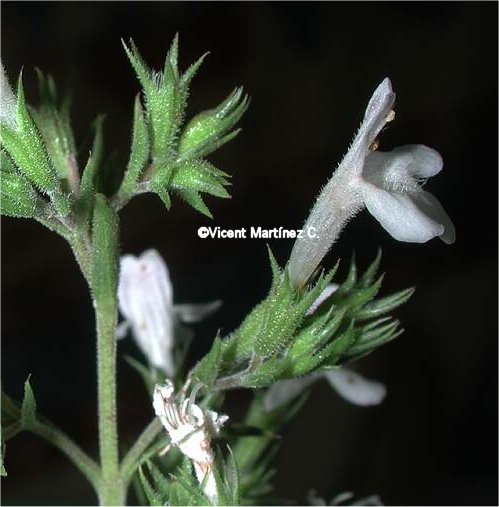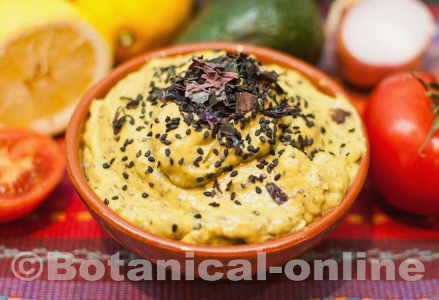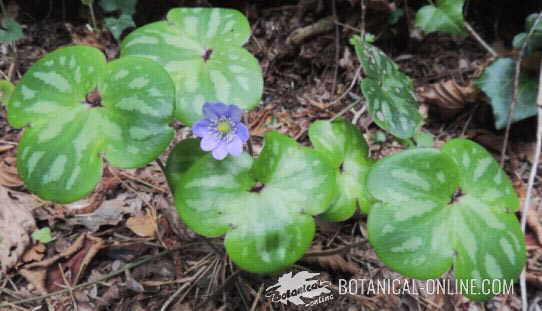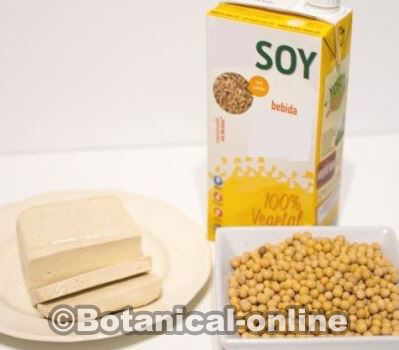Herbal treatment of cold
Phytotherapy. Medicinal plants remedies for common cold
Among the medicinal herbs suitable to treat cold, we have, for example:
- Mallow (Malva sylvestris) (10 minute infusion of a spoonful of flowers per cup of water. 4 cups per day.)
- Hibiscus (Hibiscus sp.) (Warm steam of hibiscus that are made by adding a few drops of extract of hibiscus in the water of the bath)
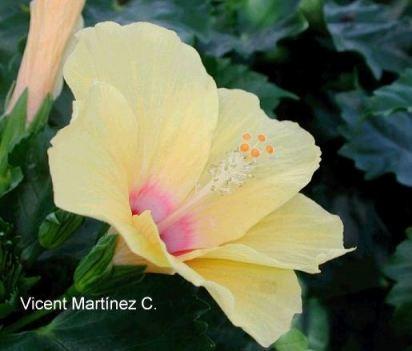
- Anise (Pimpinella anisum) The use of infusions of anise helps patients with cold feel better. (Infusion of half a teaspoon of fruits per cup of water. Take two or three cups a day after eating)
- Boldo (Peumus boldus): (Take 1.5 – 2.5g dry leaves in 200ml of water, three times a day after meals.Treatments of more than 4 weeks are contraindicated).
- Pepper (Piper nigrum) Pepper heats the abdomen and it is particularly used in the natural treatment of colds and flu for its antibacterial qualities, because it stimulates sweating (diaphoresis) and because it is a spice that benefits the lungs. (Add pepper to your food. Maximimun 5 gr daily)(25 drops of mother tincture 3 times a day.)
- Hyssop (Hyssopus officinalis) Hyssop has anti-inflammatory, antitussive and antibiotic properties to treat colds,
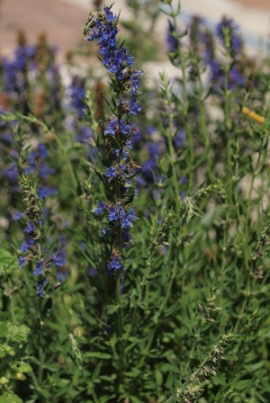
- Vervain (Verbena officinalis) (Infusion of a teaspoon of dried plant per cup of water for 10 minutes. Drink 2 or three cups a day)
- Echinacea (Echinacea) (1000 mg per day of echinacea supplement divided into 5 daily doses)
- Lime: (Citrus aurantifolia) Key lime contains at least 10 antiseptic components.(Take lime juice 2 times a day)
- Kumquat: (Fortunella spp) Because of vitamin C and phenols, kumquat is very useful to treat cold and other winter diseases (Take the whole fruit, skin on)
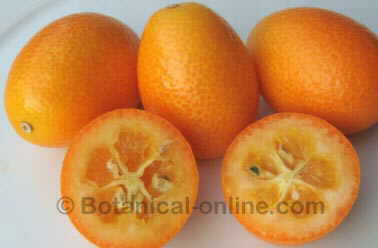
- Sundew (Drosera spp.) Drosera extract contains plumbagin, a first antibiotic against a range of bacteria and viruses. It is used as a remedy for flu, colds, to treat respiratory infections and enteritis (Infusion of 1 – 2g. Per cup, three times a day. Extract 1 teaspoon every 2-3 hours).
- Cabbage (Brassica oleracea) In order to alleviate bronchitis make a decoction of a cabbage leaf in a glass of milk during 15 minutes. Distribute it throughout the meals of the day) the same decoction is useful in influenza, common cold…etc. (4 tablespoons daily of cabbage juice produced by pressing the plant)
- Lettuce (Lactuca sativa) Ideal for soothing cough, specially or nervous origin. (Decoction of some lettuce leaves in water. Add the juice of a lemon. Drink a couple of glasses a day, one of them before going to bed.) You can also make a lettuce syrup (See recipe) Take a couple of hot glasses a day.
- Wild marjoram/oregano (Origanum vulgare) Being expectorant, antiinflammatory or antiseptic of the respiratory system, it is very useful for breathing ailments caused by infectious processes, as cold, flu, sore throat, bronchitis, etc. eliminating cough, reducing the inflammation in bronchi and helping in the elimination of the germs (5 drops of essence a day) (5 ml of extract of fluid)
- Licorice (Glycyrrhiza glabra) In addition to its bactericidal properties, licorice has anti-inflammatory and soothing properties for the respiratory mucous membrane so that its root is highly suitable for the treatment of respiratory ailments such as sore throat, cough, cold etc.. (Make a decoction with a teaspoon of dried root per cup of water. Take three glasses per day as maximum)
- Nutmeg (Myristica fragrans) The essential oil of nutmeg is used in external use to treat respiratory abnormalities such as bronchitis, (Apply a compress on the breast with some drops of diluted essential oil)
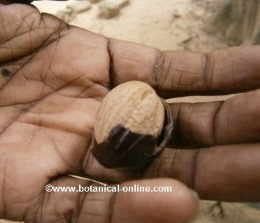
Photography of nutmeg seed, which is ground and used as a spice
- Violet (Viola odorata) Violet infusions with lemon juice help lessen symptoms. (Infusion of a spoonful of dried flowers per cup of water. Drinking three cups a day with a little lemon juice)
- Ginger (Zingiber officinale) Ginger mixed with lemon can be useful to eliminate chest congestions, caused by accumulation of mucus. Lemon and ginger, served piping hot, will assist chest cold to expectorate especially if you add a spoonful of honey. (Infusion of a teaspoon of dried root per cup of water. Take a couple of glasses a day. Add the juice of half a lemon to enhance its value.)
- Lavender (Lavandula officinalis, Lavandula latifolia) (15 minutes infusion of a spoonful of dried flowers per cup of water. Take it hot and sweetened with honey)
- Poppy (Papaver rhoeas) (Decoction for 6 minutes of 2 capsules per cup of water. 6 tablespoons at bedtime)
- Watercress (Nasturtium officinale) The antiviral, tonic and febrifugue properties of watercress and its high content of vitamin C and vitamin A, in the form of carotene, can be used to recover from colds and reduce many of the symptoms that often accompany it (cough, runny or stuffy nose, sneezing, sore throat, etc) the following syrup is recommended:
| Watercress juice syrup dissolved in sugar syrup |
(Drink 4 tablespoons per day) |
- Cinnamon (Cinnamomum zeylanicum) (Take 2 or 3 drops of essence of cinnamon dissolved in a glass of hot water sweetened with a teaspoon of honey three times a day. The essence can be found in pharmacies or herbalists. Take it according to the conditions of patient information leaflet)
- Gentian (Gentiana lutea) Gentian spirit is useful to combat cold. (See recipe)
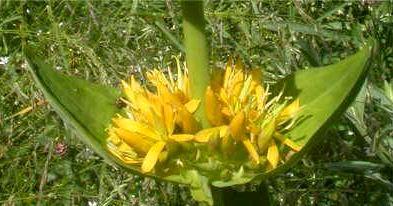
- Clove (Eugenia caryophyllata) This spice may help improve cold symptoms (A couple of drops of oil of cloves dissolved in a cup of hot water, sweetened with honey. Drink two or three glasses a day)
- Honeysuckle (Lonicera caprifolium) (Infusion of a spoonful of dried flowers per cup of water for 15 minutes Take a couple of cups a day, sweetened with honey)
- Juniper (Juniperus communis) Juniper has expectorant properties because of its content in terpenes and terpenoids. It is also a good antiseptic and antispasmodic. This makes it suitable to remedy respiratory ailments such as cold, bronchitis, sinusitis or pharyngitis (One tablespoon of dried berries per liter of water for 15 minutes. Drink throughout the day, sweetened with honey)
- Mint (Mentha x piperita, Menta spp.) Mints are very rich in menthol, a component with anticongestive and diaphoretic properties. It increases the production of sweat and relieves congestion of the respiratory channels. These properties have been exploited in the treatment of cold and flu because they are able to reduce fever by means of body sweat evaporation. (10 minutes infusion of a spoonful of the dry plant. Drink two glasses a day)
- Mango (Mangifera indica) Its high content of ascorbic acid (vitamin c) gives it mucolytic properties, making it ideal to break up mucus in case of problems or loaded chest because you are having a cold. (Infusion of a teaspoon of dried flowers per cup of water. A pair of glasses a day)
- Birch (Betula alba) It possesses febrifuge properties that can be used to reduce fever in respiratory diseases such as influenza, cold, etc. (Decoction of a teaspoon of crumbled dried bark per cup of water. Take three cups per day)
- Pine (Pinus sylvestris) (Infusion for 30 minutes three tablespoons of dried buds per liter of water. Take three cups a day with a little honey)
- Poplar (Populus nigra) (Infusion of 5 tablespoons of dried buds per liter of water for 10 minutes. Drink two or three glasses a day) (Tincture of poplar) (The tincture can be purchased at pharmacies or herbalists. To make it at home follow the recipe below)
Poplar tincture recipe |
For cold treatment, take 40 drops of tincture three times a day dissolved in water |
- Polipody: (Polypodium vulgare) (A teaspoon of dry rhizome powder sweetened before eating)
- Wild celery (Angelica archangelica)
- Lungwort (Pulmonaria officinalis)
- Iceland moss (Cetraria islandica) (Decoction for 5 minutes of 10 g of shredded dried plant per liter of water. Discard water and boil it again in fresh water for half an hour. Take a couple of cups a day)
- Elder (Sambucus nigra L.) (10-minute infusion of 20 g of dried leaves per liter of water. Take a few little cups throughout the day.)
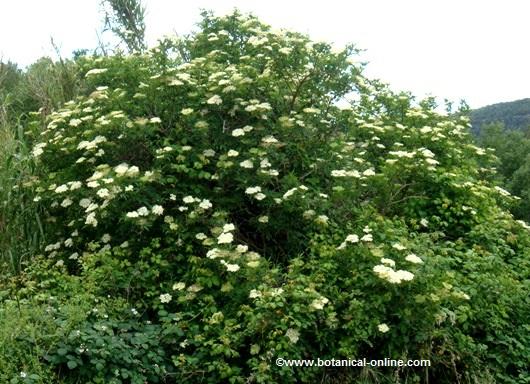
- Linden (Tilia x europaea, Tilia platyphyllos, Tilia cordata): The flowers of the linden have diaphoretic properties, so they are able to increase the body sweat. The increase of body sweat is very helpful for the treatment of colds. (Infusion of a half a teaspoon of dried flowers per cup of water. Take a couple of cups a day.)
External use remedies with medicinal plants for cold
- Mustard (Brassica nigra) Mustard poultice applied to the chest area to clear it
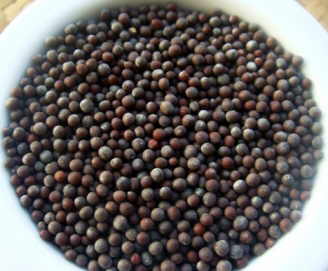
![]() More information about common cold and its natural treatment.
More information about common cold and its natural treatment.

